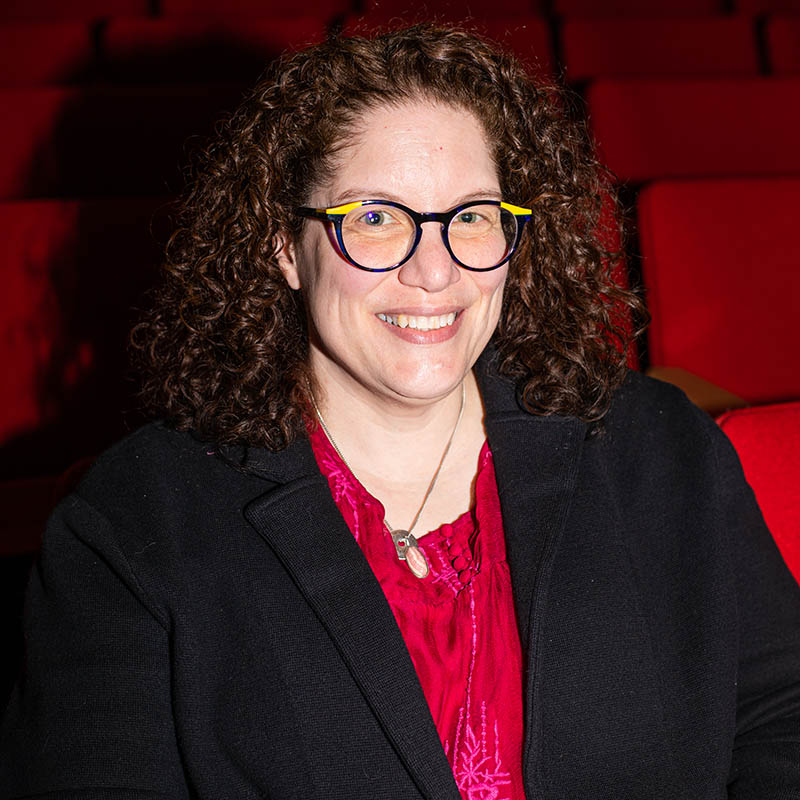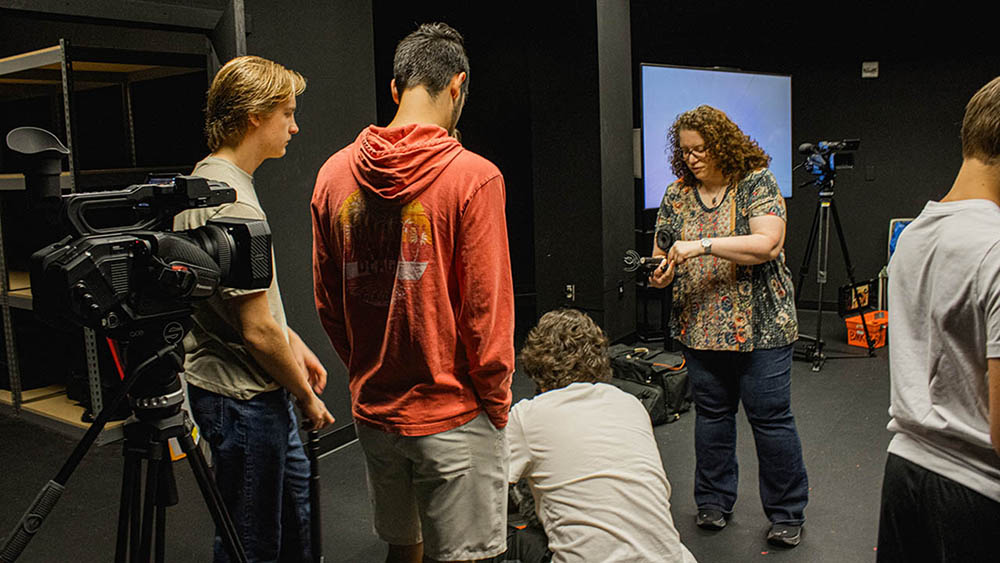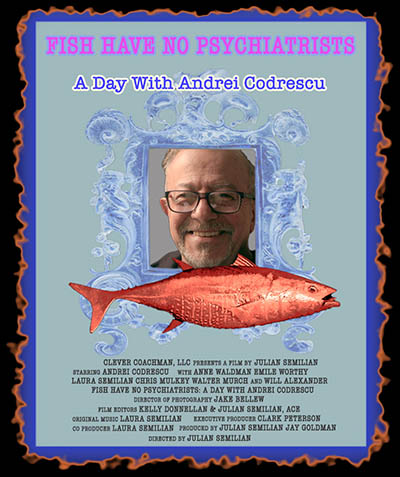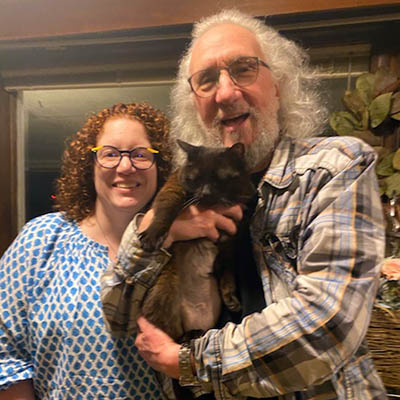Faculty Feature: Meet Kelly Donnellan, Award-Winning Editor and Director

"Teaching is the best job in film. I get to help students find their voice, one edit at a time."
Kelly Donnellan has built her filmmaking career and her teaching philosophy around curiosity, collaboration and creative persistence.
A self-described "film geek" who could “talk about movies all day long,” Donnellan now inspires the next generation of editors and storytellers in the Department of Film and Animation. From Los Angeles post-production suites to the Conservatory classroom, her journey proves that with passion, hard work and tenacity, every filmmaker can find their voice and their next opportunity.
In the Q&A below, Donnellan shares more about her background and what students can expect in her classes.
Your path to filmmaking was non-traditional. Could you tell us more about that and what led you to Point Park University?
My path to filmmaking was anything but traditional and that’s what makes it meaningful. I earned a B.S. in Physical Therapy, and during my junior year, I found the book "The AFI Guide to Schools in Film and Television." That’s when I realized people studied filmmaking, so I applied to graduate programs in film studies, intending to teach at the college level.
The problem was that I got rejected seven times. Eventually, I switched tactics and applied to undergraduate film programs instead, and I was rejected again. While taking classes, I found an ad for the North Carolina School of the Arts, a production school. I’ve never considered making films, but why not? I applied, was accepted and the rest is history.
After earning my B.F.A in Filmmaking with a concentration in Editing and Sound, I moved to Los Angeles, where I started as an editing intern on a feature film ("The Search for John Gissing") and worked my way up. My career includes editing department credits on projects including the independent feature "Love Liza," the behind-the-scenes documentary "The Matrix Revisited," several Matrix DVD special features and electronic press kit (EPK) content ("Reloaded," "Revolutions," "The Animatrix" and Enter the Matrix video game) and "The SpongeBob SquarePants Movie."
I then began teaching as an adjunct instructor at the University of Idaho. I later earned my M.F.A. in Film and Electronic Media at American University and taught for 10 years at Wayne State University before serving as visiting faculty in picture editing at the University of North Carolina School of the Arts.

In 2022, I came to Point Park because the film program is part of the Conservatory of Performing Arts, an environment that values hands-on learning, storytelling, collaboration and creative resilience.
It took me 17 years to earn my first full-time, tenure-track teaching position, a journey that taught me what I now teach my students: persistence matters. The creative path rarely unfolds in a straight line, but if you stay focused, curious and tenacious, each step, even the setbacks, moves you closer to your goals. Point Park is the perfect place to help students discover their creative voice, embrace the power of persistence and understand that every “no” can lead to the next opportunity.

Tell us about the film you edited that was recently released on several streaming platforms.
I co-edited a feature-length documentary titled "Fish Have No Psychiatrists: A Day with Andrei Codrescu," produced and directed by Julian Semilian, who began the project in 2020. I joined in 2021 to help bring Julian’s vision to life.
The film celebrates creativity, individuality and intellectual curiosity through the story of Andrei Codrescu, who is a poet, novelist, public speaker and NPR commentator. Combining interviews, archival footage, animation and striking imagery, it reminds us how storytelling can inspire new ways of seeing the world. It’s now available to stream on Apple TV, Amazon Prime, Google Play Movies, YouTube, Fandango at Home, The Roku Channel and Swank.
What does it mean to you to have this project completed?
Seeing this documentary streaming on so many platforms is beyond amazing! Not only because of the film itself but because of the enduring mentorship behind it.

Kelly Donnellan and Julian Semilian
I first met Julian Semilian in 1998 when I was a film student. He became my editing mentor, and we’ve continued to collaborate for more than two decades. Our relationship is a powerful reminder of what mentorship can do; it can shape a career and last a lifetime. It’s also something I strive to pass on to my own students. Many of my students stay in touch long after graduation, and some are now teaching at film schools themselves. When they tell me I made an impact on their creative journey, it brings everything full circle.
This documentary represents the ongoing exchange between learning, teaching and artistic growth. Watching it find its audience worldwide is profoundly rewarding.
How do you incorporate your experiences into the classroom?
In my classes, I design lectures, assignments and workflows that mirror what students will encounter in professional post-production environments. Whether it’s managing media, building timelines, or giving and receiving feedback, I want them to graduate with both the technical expertise and collaborative mindset the industry expects.
I also love bringing the industry directly into the classroom. I regularly invite my professional colleagues to join us via Zoom, giving students the chance to ask questions, hear firsthand stories from the field and begin building their own network. It’s about helping them see the bridge between the classroom and the career and giving them the confidence to cross it.
What can students expect in your classes?
Students can expect a hands-on, creative and supportive learning environment. My goal is to help every student discover the creative possibilities of editing and develop their own artistic voice. I help them move past the "technological hump," building confidence in editing software like Adobe Premiere Pro or Avid Media Composer through real-world exercises and discussion. Learning the tools is important, but so is understanding why you make each cut, how to manage media and how to stay adaptable as technology evolves.
I’m very open about being neurodiverse (ADHD), which is something I didn’t discover until graduate school. My neurodiversity makes me a better teacher as it allows me to connect with students who have different learning styles. I can break down complex concepts into approachable steps and celebrate curiosity in all its forms.
What advice do you have for prospective students?
Learning filmmaking, screenwriting or animation in a conservatory setting is both rigorous and deeply rewarding. You’ll spend long hours writing, shooting, editing, drawing, animating, compositing and collaborating, and that’s exactly what makes the experience transformative. This industry isn't just about talent; it’s about discipline, persistence and heart. If you’re passionate, curious, and ready to put in the work, Point Park’s programs will give you the hands-on training, creative community and mentorship to bring your vision to life.
Is there anything else you would like to add?
I’m a lifelong film geek who could talk about movies all day long. If you want to be a better filmmaker, be endlessly curious and watch every kind of film you can get your hands on. You can learn something from any film and from any experience; the key is figuring out what that lesson is and how to apply it.
Go to museums. Look at paintings. Study how the artist composed the frame, where the light falls, how color creates emotion. Be endlessly curious. That curiosity is the spark that keeps filmmaking and life exciting.
Outside of teaching and editing, I have two cats: Sally Menke, named after the legendary film editor, and Wally, a three-legged “tripod” cat with a big personality and an even bigger heart. I also love to bake and I’m making significant progress perfecting my Sicilian grandmother’s double chocolate chip and Heath Bar bit cookies. Ask around!

